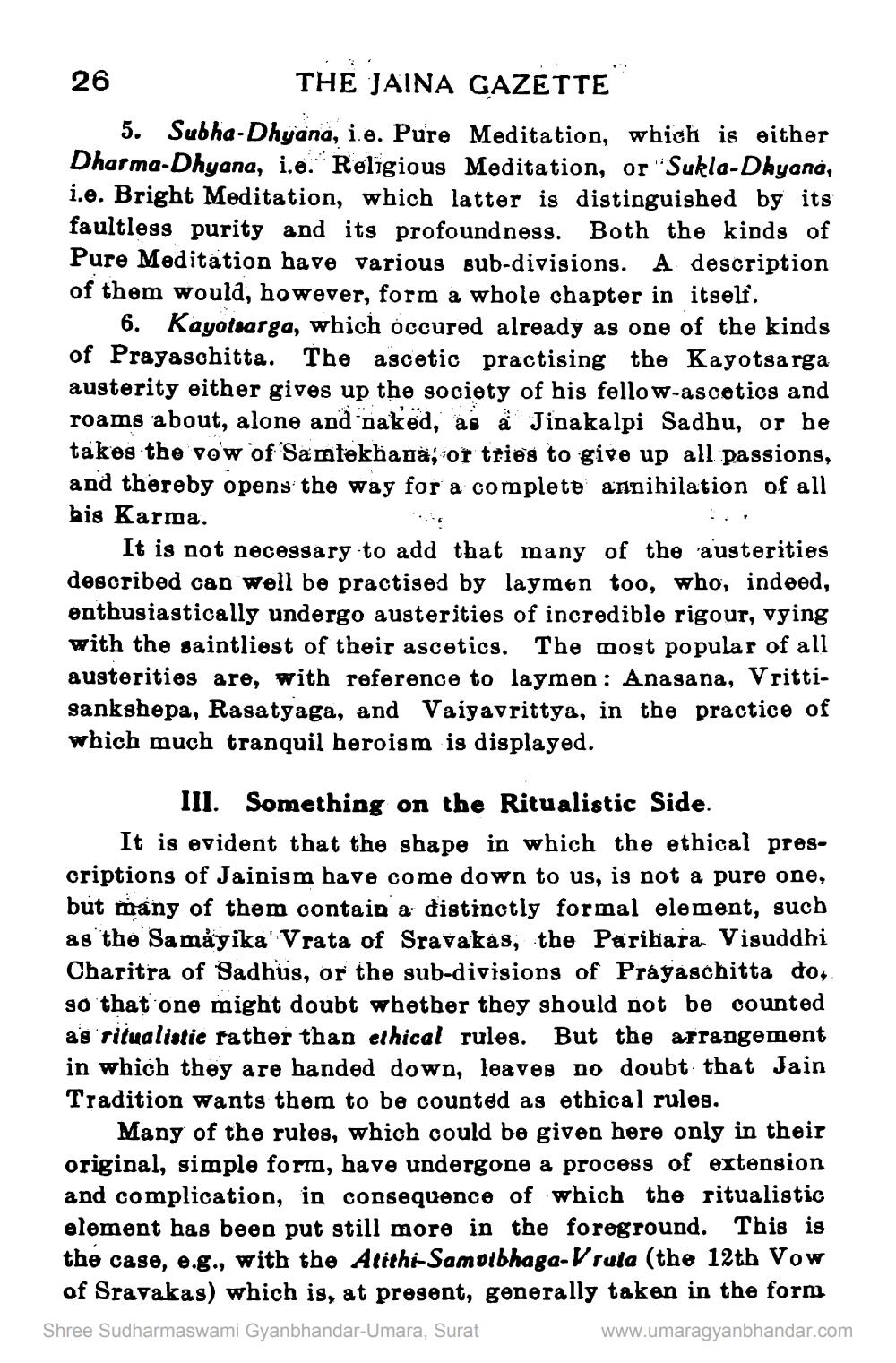________________
26
THE JAINA GAZETTE 5. Subha-Dhyana, i.e. Pure Meditation, which is either Dharma-Dhyana, i.e. Religious Meditation, or Sukla-Dhyana, i.e. Bright Meditation, which latter is distinguished by its faultless purity and its profoundness. Both the kinds of Pure Meditation have various sub-divisions. A description of them would, however, form a whole chapter in itself.
6. Kayotsarga, which occured already as one of the kinds of Prayaschitta. The ascetic practising the Kayotsarga austerity either gives up the society of his fellow-ascetics and roams about, alone and naked, as a Jinakalpi Sadhu, or be takos the vo'w of Sa mtekbanä; or tries to give up all passions, and thereby opens the way for a completo annihilation of all his Karma.
It is not necessary to add that many of the 'austerities described can well be practised by laymon too, who, indeed, enthusiastically undergo austerities of incredible rigour, vying with the saintliest of their ascetics. The most popular of all austerities are, with reference to laymen: Anagana, Vrittisankshepa, Rasatyaga, and Vaiyavrittya, in the practice of which much tranquil heroism is displayed.
III. Something on the Ritualistic Side. It is evident that the shape in which the ethical prescriptions of Jainism have come down to us, is not a pure one, but many of them contain a distinctly formal element, sucb as the Samåyika' Vrata of Sravakás, the Paribara Visuddhi Charitra of Sadhus, or the sub-divisions of Prayaschitta do, so that one might doubt whether they should not be counted as ritualistic rather than ethical rules. But the arrangement in which they are handed down, leaves no doubt that Jain Tradition wants them to be counted as ethical rules.
Many of the rules, which could be given here only in their original, simple form, have undergone a process of extension and complication, in consequence of which the ritualistic alement has been put still more in the foreground. This is the case, e.g., with the Alithi-Samoibhaga-Vrula (the 12th Vow
of Sravakas) which is, at present, generally taken in the form Shree Sudharmaswami Gyanbhandar-Umara, Surat
www.umaragyanbhandar.com




